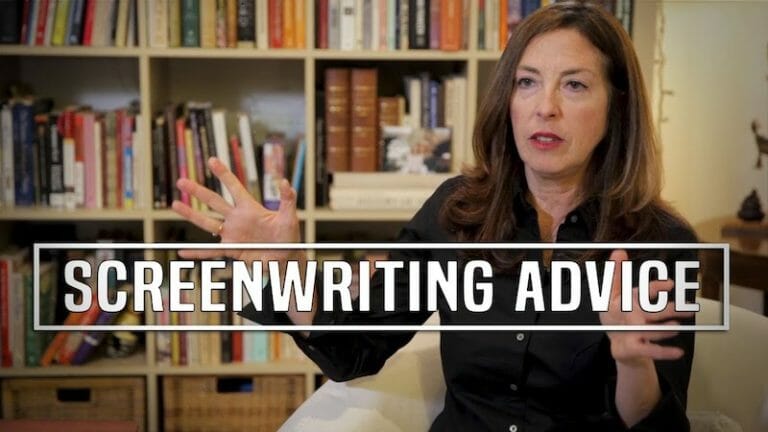By Ken Miyamoto · June 12, 2019

What are some of the best pieces of advice for young screenwriters?
Welcome to our ongoing Learning from the Masters and Industry Insiders series where we seek out and feature excellent videos, interviews, and discussions of the art, craft, and business of screenwriting and pull the best words of wisdom, writing tips, and screenwriting advice.
Here we turn to Film Courage where they interview L.A. For Hire’s Wendy Kram, asking her to give advice to young screenwriters out there. We feature that advice and offer our own elaboration.
1. Read As Many Screenplays to Hit Shows and Movies That You Can
“One of the best tips I heard a female showrunner say. When she came out to L.A., she spent the first year reading every single pilot that had been picked up… that she could get her hands on. And also maybe reading pilots from series made a couple of years ago.”
Reading screenplays is essential to a screenwriter’s education. It is even more proactive to focus on the latest hits, as opposed to just reading the classics from twenty, thirty, forty, or fifty years ago.
When you read contemporary scripts, especially ones within the last couple of years, you’re learning what the industry is developing and looking for.
And perhaps the most important part of this tip is when she says that the showrunner spent their first year reading those scripts. So many young screenwriters jump into the fire too quickly, only to burn out and fail. Take the time to educate yourself before you begin this screenwriting journey. There’s no rush. You’re young. A year of reading scripts and studying what works could push you years ahead of the rest.
“Shakespeare, for me, was one of my best teachers. Understanding how well-defined his characters were. The dialogue, the conflict, the character’s needs, and wants, and what gets in their way. The stakes — you don’t get bigger than Shakespeare with Macbeth and Hamlet.”
William Shakespeare’s plays are becoming a lost well of knowledge with the new generation of writers coming up. His writings have a wealth of storytelling and characterization wisdom.
“When I was in my twenties, I watched An Officer and a Gentlemen and wrote down, as I was watching it, what each scene was. So I had to pause a lot. What it does is it really helps you understand and get a feel for rhythm and structure — almost through osmosis while doing it. And the point of doing it… is to get you to understand the rhythms of scenes and how they flow from one to the next… you don’t have to do every single line.”
This is a lost practice in this day and age. Back before the internet, it was difficult to find screenplays for produced films to read. So one form of practice would be to watch a movie on VHS and write the bare bones version of the script based on what you see on the screen.
It’s less about capturing the full scene description and more about capturing the core elements of each scene as you learn about the pacing and rhythm of how each scene is stacked on top of one another.
It’s an outstanding way to learn screenwriting structure, aesthetics, pacing.
Watch the whole video below for more elaboration on her helpful pieces of advice.
For all the latest from The Script Lab, be sure to follow us on Twitter, Facebook, and Instagram.
And become a member of TSL 360 to enjoy the LARGEST screenwriting education content library, featuring masterclasses, deep-dive interviews, and lectures from Academy Award-winning screenwriters, TV show-runners, producers, literary managers, agents, studio executives, and leading educators – all in one place.